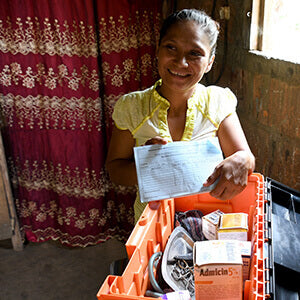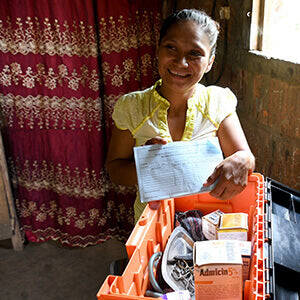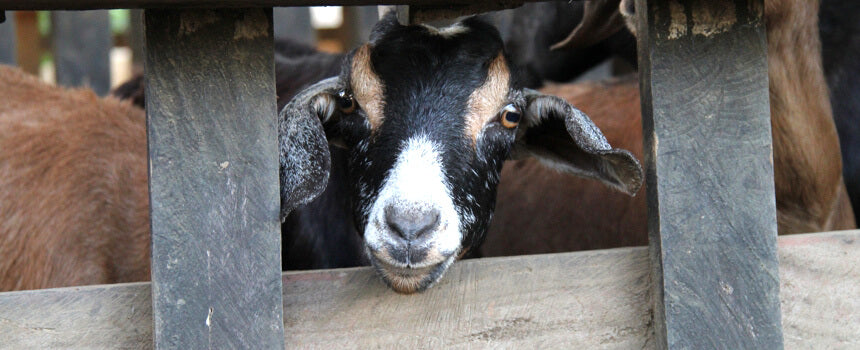
Training of animal specialists in Nicaragua

need
Local veterinary treatment options (e.g. vaccinations for goats) for small farming families in remote communities in Nicaragua.
activity
Women are trained as veterinary professionals and provided with medication to provide affordable veterinary treatment.
Measurable performance
Number of veterinary treatments performed by local professionals.
Result
Animal diseases are detected early and treated inexpensively, which reduces animal mortality and increases livestock production.
Systemically relevant impact
Increasing animal welfare, food security, reducing gender hierarchies and improving the status of women in communities.
background


The good deed
AboutNicaragua
Managua
Capital city
6 150 000
Population
5.157
Gross domestic product
per capita per year
124
Human Development Index
(Human Development Index)



